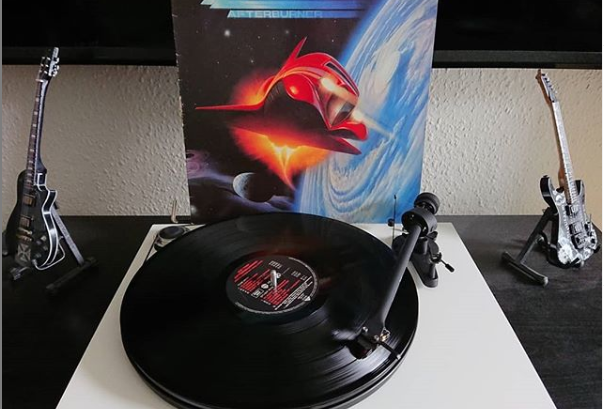When ZZ Top recorded Afterburner during one of their recording sessions they kept it a secret to their manager/producer Bill Ham to make the album into a more modern sound.
“I wouldn’t say that we defied Bill,” the late engineer Joe Hardy told in an exclusive, previously unpublished interview. “We just went behind his back and did stuff. When I did Afterburner, we had all of the rhythm tracks and all of the bass tracks done in Houston on a Fairlight.”
Bill Ham never had an idea about the secret recording sessions:
“He never said, ‘Who did the drums, where did they come from? Where did you record them? Why wasn’t I there?'” Hardy remembered. “It was just very strange.”
Joe Hardy became an engineer for ZZ Top after Terry Manning, the man behind with the group on 1973’s Tres Hombres, left.
“Bill Ham’s idol was Tom Parker and so you can kind of deduce from that,” Hardy told. “Well, for example, I wasn’t allowed to talk to [ZZ Top frontman] Billy [Gibbons]. I would say, ‘Bill, Billy’s G string is sharp,’ and he’d go, ‘Boy, tune that G string. You’re sharp.’ I wasn’t actually allowed to talk to him. So, we would sneak back in at night and re-record stuff. Bill never knew anything about any of that. I mean, he didn’t know. One time, I was playing back a cassette of a demo. He went, ‘Hey, turn that guitar up.’ I went, ‘Well, Bill, it’s a cassette. I don’t have separate tracks.’ ‘Terry [Manning] could do it.’ So, I just turned it all up and he said, ‘There, see? You learn something every day.'”
Afterburner gave ZZ Top’s new multi-platinum, despite it being not critics favorite. “They made a lot of money – and that’s one thing, when people criticize them about using machines or sequencers,” Hardy said. “They did a lot of great stuff before Eliminator, [but] Eliminator made them billionaires, so you can’t argue with the money – because people vote with their dollars, about what they like. They won big on that record.”
Listen to the album below:

